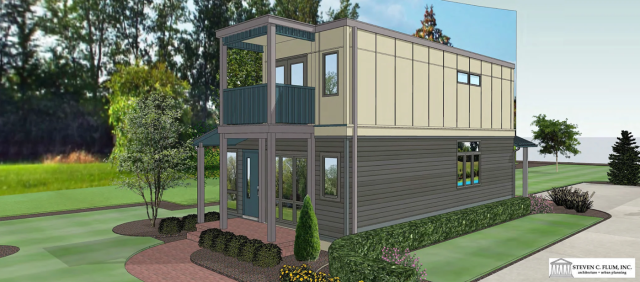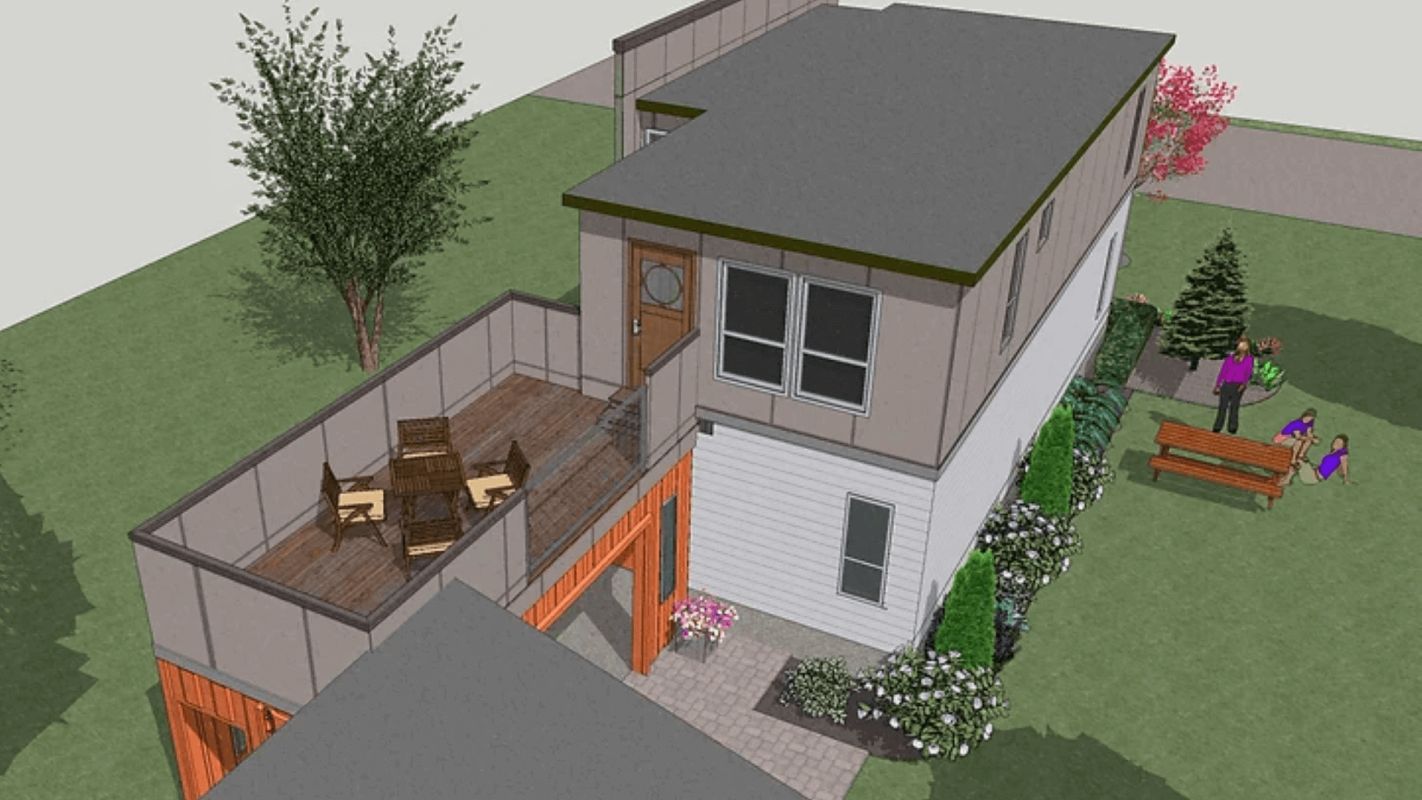A new development on Chicago's South Side is out to prove that even luxury homes can go green — with 12 eco-friendly houses made from recycled shipping containers.
The homes at Vincennes Village, which start at $300,000 apiece, will be 1,200-1,800 square feet each and will include energy-efficient features like motion-activated lighting.
The team behind the development says the houses can be constructed in three to four months — about half the time of other types of homes — and require less labor and fewer building materials. The development initially hoped to welcome families by the end of 2022, but city delays pushed the timeline back to 2023.

Shipping container homes have long caught the eye of #inspo seekers, but they have yet to catch on among the general public. However, that could be changing.
The Business Research Company estimates that the market for container housing will grow at a compound annual growth rate of 7.3% until 2026, reaching a value of nearly $68 billion. This could mean a lot more developments like Vincennes Village in cities across America.

Recycling shipping containers for housing does have its drawbacks, though. As Megan Barber writes in Curbed, "Some used containers are hardly eco-friendly—they may have held toxic chemicals or have been treated to prevent corrosion during transit, leading to high levels of chemical residue."
As University of San Diego instructor Gary London told San Diego Magazine, "There's some interest there, but that's hardly a solution to housing issues. Containers will only represent a solution if they can be delivered and built substantially cheaper than any other kinds of housing."
Given the price tag at Vincennes Village, the cost to consumers for container houses may wind up being similar to that of other types of houses. However, both private developers and groups like Habitat for Humanity have used shipping containers to build affordable housing in places like Ohio and Texas.
And shipping containers make great skeletons for tiny homes, which 86% of Americans say they would consider buying as their first home.
Join our free newsletter for easy tips to save more, waste less, and help yourself while helping the planet.









